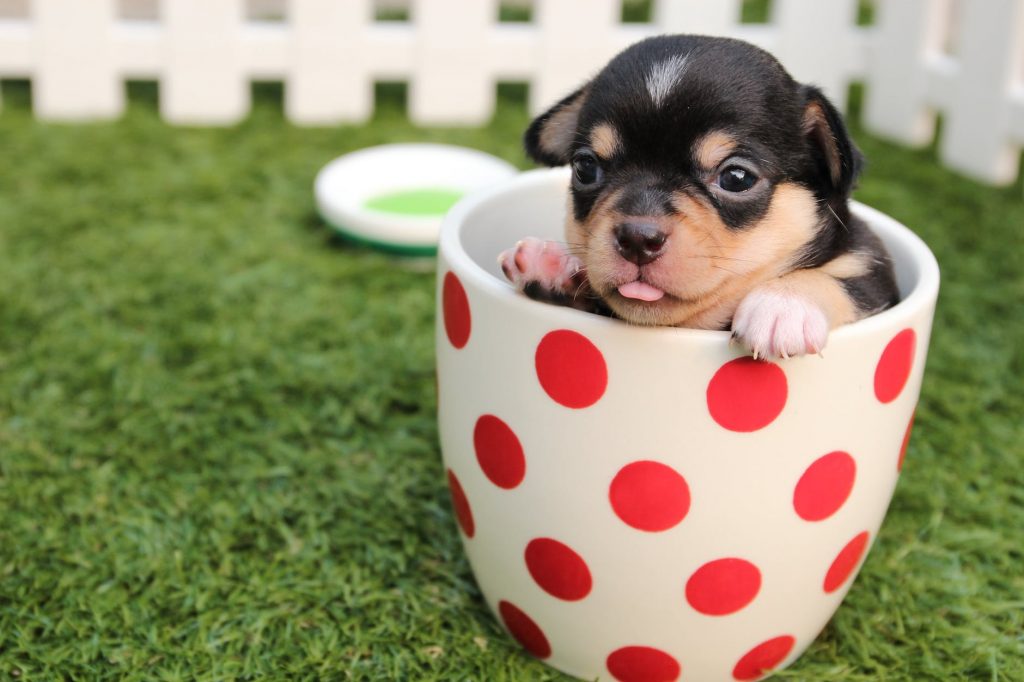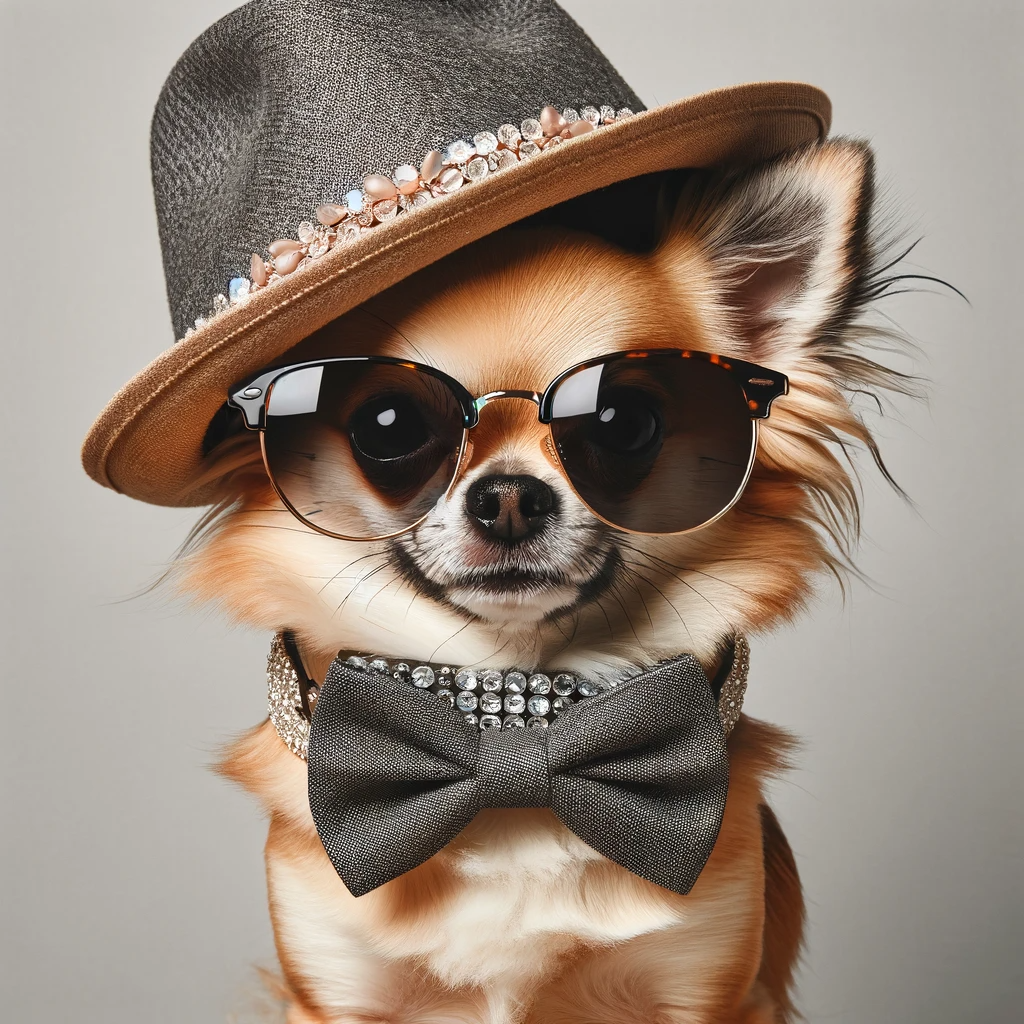Introduction
Chihuahuas are adorable and lively little dogs that have gained immense popularity worldwide. Their small size, distinctive appearance, and lively personality make them a favorite choice for many dog lovers. In this comprehensive guide, we will delve into the fascinating world of Chihuahuas, exploring their history, characteristics, care requirements, and more. Whether you are considering getting a Chihuahua or already have one as a beloved companion, this article will provide you with valuable insights into these delightful canine companions.
Table of Contents
- The History of Chihuahuas
- Appearance and Size
- Temperament and Personality
- Health and Care
- Training and Socialization
- Feeding and Nutrition
- Exercise and Activity
- Grooming Tips for Chihuahuas
- Common Health Issues
- Chihuahuas and Children
- Chihuahuas as Therapy Dogs
- Traveling with Chihuahuas
- Chihuahuas in Popular Culture
- Finding the Perfect Chihuahua
- Conclusion
1. The History of Chihuahuas
Chihuahuas are believed to have originated in Mexico and are named after the Mexican state of Chihuahua. They are thought to be descendants of the Techichi, a companion dog cherished by the ancient Toltec civilization. Chihuahuas were highly regarded by the Aztecs as sacred animals and were often used in religious ceremonies. Their popularity spread to Europe and the United States in the 19th century, and they have since become one of the most cherished dog breeds globally.
2. Appearance and Size
Chihuahuas are known for their tiny size, with an average height of 6 to 9 inches and a weight ranging between 2 to 6 pounds. They have a distinctive apple-shaped head, large expressive eyes, and erect ears. Chihuahuas come in two coat varieties: smooth coat (short hair) and long coat. The smooth coat is sleek and shiny, while the long coat is soft and feathery.
3. Temperament and Personality
Despite their small size, Chihuahuas possess a big personality. They are often described as lively, alert, and courageous. Chihuahuas are known to form strong bonds with their owners and can be quite protective. They are generally good with other pets in the household but may be wary of strangers. Early socialization and positive training are essential to ensure a well-rounded and well-behaved Chihuahua.
4. Health and Care
Chihuahuas, like any other dog breed, require regular veterinary care to ensure their overall health and well-being. They are generally a healthy breed, but they are prone to certain health issues such as dental problems, patellar luxation, and heart conditions. Regular exercise, a balanced diet, and proper dental care are crucial for maintaining their health. Additionally, Chihuahuas may be more susceptible to cold temperatures due to their small size, so providing appropriate clothing or shelter during colder seasons is recommended.
5. Training and Socialization
Training a Chihuahua requires patience, consistency, and positive reinforcement techniques. Despite their small size, they are intelligent dogs and can excel in obedience training with the right approach. Early socialization is crucial to help them become well-adjusted and confident around different people, animals, and environments. Properly trained and socialized Chihuahuas can be well-behaved and sociable companions.
6. Feeding and Nutrition
A balanced and nutritious diet is essential for the health and well-being of Chihuahuas. Due to their small size, they have unique dietary requirements and may benefit from smaller, more frequent meals to avoid digestive issues. High-quality commercial dog food formulated for small breeds is recommended, and it’s important to consult with a veterinarian to determine the appropriate portion sizes and feeding schedule for your Chihuahua.
7. Exercise and Activity
Chihuahuas may be small, but they still require regular exercise and mental stimulation to stay healthy and happy. Daily walks, interactive playtime, and engaging toys can help meet their exercise needs. It’s important to remember not to overexert them due to their small size and delicate bone structure. Providing a safe and secure outdoor space or supervised indoor play areas can ensure they get the exercise they need.
8. Grooming Tips for Chihuahuas
Grooming Chihuahuas is relatively easy, especially for those with a smooth coat. Regular brushing helps remove loose hair and keeps their coat shiny. Long-coated Chihuahuas may require more frequent brushing to prevent tangles and matting. Additionally, regular dental care, nail trimming, and ear cleaning are important parts of their grooming routine.
9. Common Health Issues
While Chihuahuas are generally healthy dogs, they are prone to certain health issues. Dental problems, including tooth decay and gum disease, are common due to their small mouths. Patellar luxation, a condition where the kneecap dislocates, can affect some Chihuahuas. Heart conditions, such as heart murmurs or mitral valve disease, are also seen in this breed. Regular veterinary check-ups and a healthy lifestyle can help detect and manage these health issues.
10. Chihuahuas and Children
Chihuahuas can make wonderful companions for older children who understand how to handle small dogs gently and respectfully. However, due to their small size, they may not be suitable for families with young children who may accidentally injure them. Supervision and teaching children about appropriate interactions with dogs are important to ensure the safety and well-being of both the child and the Chihuahua.
11. Chihuahuas as Therapy Dogs
The friendly and affectionate nature of Chihuahuas makes them suitable candidates for therapy dog work. They can provide emotional support and comfort to individuals in hospitals, nursing homes, and other care facilities. Their small size allows them to be easily transported and visit patients or residents in various settings. Proper training and certification are necessary to become a therapy dog team.
12. Traveling with Chihuahuas
Chihuahuas are excellent travel companions due to their small size and adaptability. Whether you’re taking a road trip or flying, there are important considerations to ensure their safety and comfort. Securely restraining them in a travel carrier, ensuring they have proper identification, and carrying essential supplies such as food, water, and bedding are essential for a smooth and stress-free travel experience.
13. Chihuahuas in Popular Culture
Chihuahuas have captured the hearts of many and have become popular in movies, television shows, and advertising campaigns. Their unique appearance and charismatic personality have made them iconic symbols in popular culture. They have been featured in films like “Beverly Hills Chihuahua” and have become beloved mascots for certain brands.
14. Finding the Perfect Chihuahua
If you’re considering adding a Chihuahua to your family, it’s essential to find a reputable breeder or consider adopting from a rescue organization. Responsible breeders prioritize the health and well-being of their dogs and provide proper socialization. Adoption is also a wonderful option, as many Chihuahuas are in need of loving homes. Conduct thorough research, visit the breeder or shelter, and ask questions to ensure a happy and healthy match.
15. Conclusion
Chihuahuas are captivating little dogs with larger-than-life personalities. Their compact size, expressive eyes, and spirited nature make them a cherished breed among dog enthusiasts. In this guide, we have explored various aspects of Chihuahuas, including their history, appearance, temperament, care requirements, and more. By understanding their unique characteristics and providing them with the love, care, and attention they deserve, you can enjoy a fulfilling and joyous companionship with your Chihuahua.
FAQs
1. Are Chihuahuas good with children?
Chihuahuas can be good with older children who treat them gently and respectfully. However, families with young children should exercise caution due to their small size.
2. Do Chihuahuas require a lot of exercise?
While Chihuahuas are small, they still require daily exercise to stay healthy. Regular walks and interactive playtime are beneficial for their physical and mental well-being.
3. Are Chihuahuas easy to groom?
Chihuahuas are relatively easy to groom, especially those with a smooth coat. Regular brushing and basic grooming practices keep their coat in good condition.
4. Do Chihuahuas have any common health issues?
Chihuahuas may be prone to dental problems, patellar luxation, and certain heart conditions. Regular veterinary check-ups and a healthy lifestyle can help manage these issues.
5. Where can I find a Chihuahua to adopt?
You can find Chihuahuas for adoption at local rescue organizations or animal shelters. Additionally, reputable breeders may have Chihuahua puppies available for adoption.



Pingback: Best Chihuahua Life Jackets To Keep Your Dog Safe - Chihuahuas Blog
Pingback: Chihuahua Care: A Comprehensive Guide to Raising a Happy and Healthy Chihuahua
Pingback: Chihuahua Jackets: Top 8 Picks To Keep Your Dog Warm - Chihuahuas Blog
Pingback: Teacup Chihuahua Clothes: The Ultimate Guide For Owners - Chihuahuas Blog
Pingback: Why Do Chihuahuas Lick So Much? - Chihuahuas Shop
Pingback: 9 Best Chihuahua Accessories Every Owner Needs - Chihuahuas Blog
Pingback: Chihuahuas And Cats: The Ultimate Guide For Owners - Chihuahuas Blog
Pingback: Chihuahua Teeth Falling Out: What Should I Do? Top Tips - Chihuahuas Blog